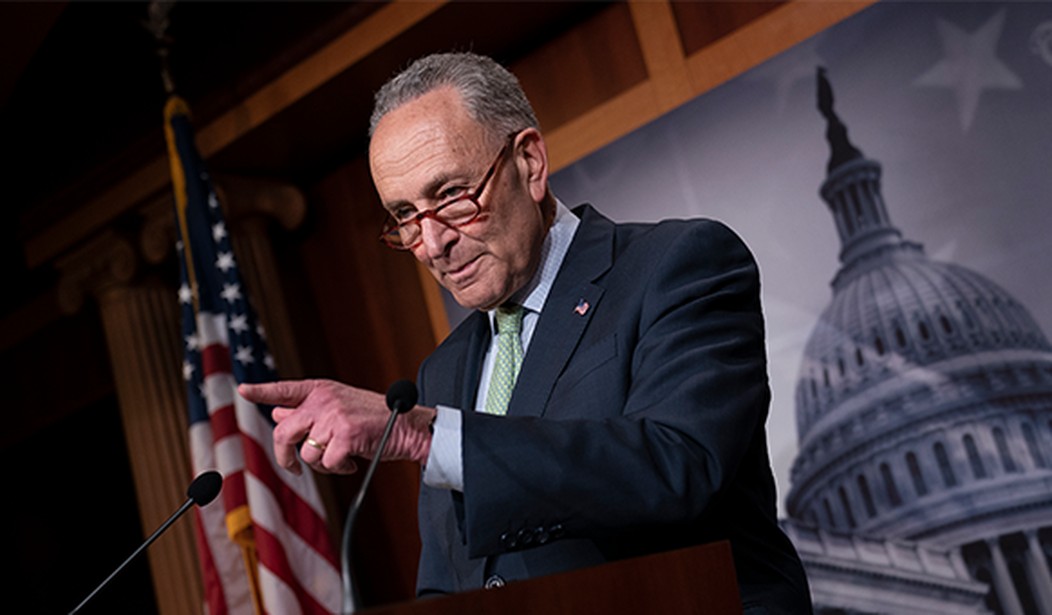The Democrats whining about President Trump’s opportunity to nominate a new Supreme Court Justice seem to have forgotten that elections have profound consequences — if the American people had entrusted the left with a Senate majority, then the Democrat Party would have the votes to reject the President’s pick.
Whether the Democrats like it or not, the battle over the Supreme Court was one of the central issues of the historic 2016 election. From the earliest days of his presidential campaign, Donald Trump promised to nominate conservative judges to the bench if and when such vacancies occurred.
“I’m going to submit a list of justices, potential justices of the United States Supreme Court, that I will appoint from the list,” he said at the time, specifically vowing not to appoint liberal judges to the bench. The pledge took on added significance because there was a vacancy on the court when voters went to the polls in 2016, allowing them to consider the question of judicial philosophy when casting their ballots.
Justice Ginsburg’s age was not a state secret, either — it was reasonable to assume that her seat would ultimately be filled by the winner of the 2016 election. She was, after all, the oldest sitting member of the court. Almost everyone expected that the winner of the 2016 election would get at least two chances to nominate a new Supreme Court justice, making the issue far more prominent than usual.
With all these factors in mind, the American people elected Donald Trump and ensured that the Republican Party kept control of the Senate. The latter was particularly impressive given the fact that the GOP had to defend a total of 24 Senate seats, while the Democrats were only defending 10. Voters reaffirmed the GOP majority during the midterm elections two years later.
Recommended
Remarkably, the Democrats now behave as if the American people have given them some sort of mandate to determine the fate of the Supreme Court. Citing the death of the late Justice Antonin Scalia, they claim that the Senate should wait to confirm a prospective nominee until after the upcoming election, as it did in 2016.
Of course, the situations are not even close to analogous. For one thing, the GOP had every right to withhold a confirmation vote on President Obama’s nominee, Merrick Garland, because Republicans had the power of the majority in the Senate. For another, there would be a new president in January 2017 regardless of who won the election, whereas now the incumbent will be held democratically accountable for whomever he decides to nominate.
Remarkably, some Democrats have even gone so far as to suggest that President Trump should be — and this is not an exaggeration —impeached for exercising his constitutional authority to nominate federal judges.
Representative Alexandria Ocasio-Cortez, for instance, argued that House Democrats “must consider, again, all of the tools available to our disposal, and that all of these options should be entertained and on the table” to prevent President Trump from filling the vacant seat on the Supreme Court.
Similarly, House Speaker Nancy Pelosi recently refused to rule out impeachment as a possible tool to delay action on the future Supreme Court nominee, even sounding a bit peeved that others had anticipated the ploy when she was asked about it directly.
“Well, we have our options,” she remarked. “We have arrows in our quiver that I’m not about to discuss right now.”
The Democrats only have themselves to blame for their current political predicament — the American people never entrusted them with the power to block President Trump’s judicial nominations. The Constitution gives the president a clear mandate to nominate someone to fill a vacancy on the Supreme Court, subject only to the advice and consent of the U.S. Senate.
As Ginsburg explained four years ago, “There’s nothing in the Constitution that says the president stops being the president in his last year [in office].” The same is certainly true of President Trump.
Jenna Ellis (@JennaEllisEsq) is a constitutional law attorney and the senior legal adviser for the Trump 2020 campaign. She is the author of The Legal Basis for a Moral Constitution.

























Join the conversation as a VIP Member